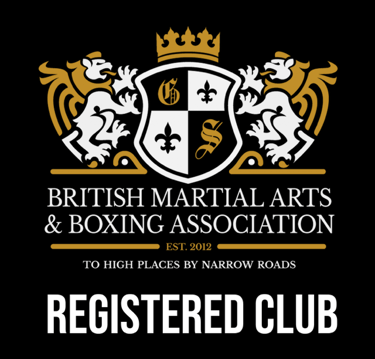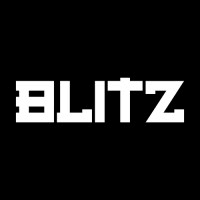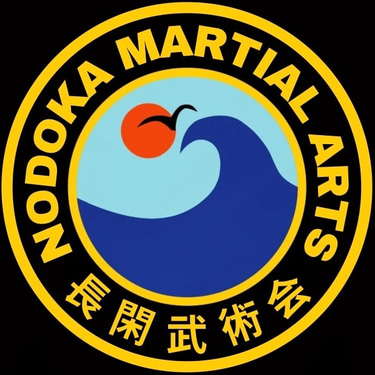Nodoka Martial Arts
Safeguarding Policy & Procedures
Purpose
The purpose of this policy is to:
set out how Nodoka Martial Arts academy protects children, young persons and adults at risk from harm during their training within the club. This includes harm arising from abuse of all kinds, including sexual, physical and emotional abuse, neglect, bullying and any other forms of violence or exploitation.
provide our instructors, volunteers and visitors with the principles that guide our approach to safeguarding, promoting good practice to prevent harm and abuse occurring.
provide information on reporting mechanisms, to ensure that instructors, volunteers, parents, students, and members of the public are confident reporting a concern.
lay out Nodoka Martial Arts academy’s responsibilities and support appropriate action to be taken by the academy that ensures that any allegations of abuse or suspicions are dealt with appropriately and the person experiencing abuse is supported.
This Policy should be read alongside our commitment / policies and procedures on;
Privacy Policy (includes Data Protection)
Scope Of This Policy
This policy shall be effective and mandatory for all instructors, volunteers, and visiting instructors. This policy shall also be effective for all visitors and parents of Nodoka Martial Arts academy.
Safeguarding Policy Statement
NODOKA MARTIAL ARTS BELIEVE THAT EVERY CHILD, YOUNG PERSON OR ADULT SHOULD NEVER EXPERIENCE ABUSE OF ANY KIND. WE HAVE A RESPONSIBILITY TO PROMOTE THE WELFARE OF ALL CHILDREN, YOUNG PEOPLE AND ADULTS AT-RISK TO KEEP THEM SAFE. WE ARE COMMITTED TO TEACHING AND PROMOTING MARTIAL ARTS IN A WAY THAT PROTECTS THEM.
Nodoka Martial Arts believe that everyone we come into contact with, regardless of age, gender identity, disability, religion, sexual orientation or ethnic origin has the right to be protected from all forms of harm, abuse, neglect and exploitation. Nodoka Martial Arts will not tolerate abuse and exploitation by instructors, volunteers, other students, visitors, or associated personnel. Nodoka Martial Arts remain committed to ensuring the effective prevention, reporting and response to any safeguarding concerns raised or detected.
Nodoka Martial Arts has a zero-tolerance policy for abuse.
The policy and procedures relate to the safeguarding of children (under 18) and adults at risk.
Adults at risk are defined as individuals aged over 18, who:
are experiencing, or at risk of, abuse or neglect; and
have needs for care and support, and;
as a result of those care and support needs are unable to protect themselves from either the risk of, or the experience of abuse or neglect. (Care Act, 2014)
Prevention
To provide vulnerable groups with the best possible experience and opportunities within Freestyle Karate, Nodoka Martial Arts operates in line with the BMABA national safeguarding policy. This includes ensuring best practice is always met in relation to safeguarding and risk management. A core part of Nodoka Martial Arts’ preventative approach is to ensure that the following is met in terms of minimum best practice guidance at all times;
Instructors are expected to comply with BMABA association national frameworks and regulatory guidelines in respect of minimum standards, best practice and compulsory safeguarding obligations.
Instructors must always hold the minimum grade required to competently and technically deliver the class in question, with additional qualifications as necessary for specialist styles or roles.
Instructors must all hold the necessary Public Liability insurance, a valid first aid qualification and both an enhanced DBS check within 3 years from date of issue, and an in-date safeguarding qualification relevant to the group(s) being taught. This ensures that at least 1 person in the room has safeguarding and first aid qualifications.
Volunteers must have a DBS check every 3 years.
The Safeguarding Lead must have a specific Lead Safeguarding qualification.
Volunteers and instructors should not be messaging children (under 18) attending the studio on social media/texting or keep contact very brief if a young person contacts about the classes.
Treat all young persons aged under 18 years of age, and all adults at-risk, with respect, dignity and courtesy.
Treat all children and / or adults at-risk equally.
Always put the welfare of children and / or adults at-risk first.
Always work in an open environment avoiding any isolation, unobserved situations, encouraging an open and transparent club community.
Never be alone with a child and / or adult at-risk.
Keep physical contact to an absolute minimum.
Where physical contact is essential as part of the safe and structured learning process of the art, discipline or sport being practiced, the instructor and/or teaching person must only do so with the consent of the child and/or adult at-risk, remaining appropriate, non-intrusive and ensuring that where physical contact is essential (for example, when assisting in an essential physical process for the purposes of safety, such as breakfalls) ensuring there is always two fully vetted and suitable adults present at all times.
The involvement of parents / guardians is encouraged wherever possible, provided safeguarding of children and / or adults at-risk remains the top priority and that any adult may not be given the opportunity to cause harm, distress or abuse to any children and / or adults at-risk present.
Not take identifiable photographs, videos or create any other forms of media featuring any children without written consent from the carer, guardian or parents in advance. For any adult at-risk, make sure you have written consent in advance from them and a carer if relevant.
Ensure that if the club embarks on any extra-curricular activities, safeguarding of children and / or adults at-risk shall remain a top priority and furthermore, if classes are mixed in gender, both a vetted male and female club member must be present when out of the dojo.
Remain an excellent role model both in and out of the dojo. This includes not smoking, drinking alcohol or using any foul language in front of any children and / or adults at-risk.
Ensure that any contact via social media or other digital formats are recorded and minimised. All communication between instructors and children and / or adults at-risk (once known) should always remain professional via any forms of social media.
Implement safer recruitment practices for paid staff and volunteers, including Disclosure and Barring Service (DBS) checks, references, and providing adequate training on safeguarding.
Recognise the development needs and capacity of the children and / or adults at-risk in the class and not risk sacrificing welfare or safety for the club or instructor’s personal gain.
In relation to the above this also means avoiding excessive training and / or competitions and not pushing the student if they are not fully confident.
Creating and maintain an anti-bullying environment and ensuring that the safeguarding policy and procedure is followed to deal effectively with any bullying that does arise.
Secure written parental consent for the club to act in loco parentis, to give permission for the administration of emergency first aid or other medical treatment if the need arises, ensuring medical conditions and pre-existing injuries and allergies are recorded.
Keep thorough records of any injuries or near misses that have occurred, along with details of any treatment given and further communication had with parents / guardians and/or children and / or adults at-risk.
Follow association guidelines and other association policy relating to good practice or best practice.
Nodoka Martial Arts academy remain committed to ensuring prevention via professional, competent club governance at all times.
Types of abuse
Abuse includes:
· Discriminatory
· Domestic abuse or violence
· Financial or material
· Grooming
· Modern slavery
· Neglect and acts of omission
· Online abuse
· Organisational/institutional
· Physical
· Psychological/emotional
· Sexual abuse
· Self-neglect
· Exploitation:
o Criminal exploitation
o County Lines
o Sexual exploitation
Radicalisation
Nodoka Martial Arts also recognise the need to safeguard children and adults who can be at risk of radicalisation from extremist views.
People who are vulnerable are more likely to be influenced. Their vulnerability could stem from a range of causes: loss of identity or sense of belonging, isolation, exclusion, mental health problems, sense of injustice, personal crisis, victim of hate crime or discrimination, or bereavement.
Raising Concerns Or Making A Disclosure
Nodoka Martial Arts will always ensure that in any case where a child or adult at-risk might directly confide to any form of abuse, that the club must take immediate steps to safeguard that person effectively. Where concerns are raised by a third party, or by suspicions held by the instructor or club, the below checklist shall be maintained wherever possible but in all instances, the club will escalate and report in full on all occasions.
If a child or adult at-risk indicates that they are being abused, the instructor to whom the disclosure is made will;
keep yourself and others safe (safety is paramount). Call the emergency services if feel you or others are in danger.
stay calm so as not to frighten the child or adult at-risk.
reassure the child or adult at-risk that they are not to blame and that it was right to inform.
listen to the child or adult at-risk, showing that they are being taken seriously.
keep questions to a minimum so that there is a clear and accurate understanding of what has been said. The law is very strict and child / adult at-risk abuse cases have been dismissed where it is felt that the child or adult at-risk has been led or words and ideas have been suggested during questioning. Accordingly, the instructor must only ask questions to clarify details – not to question further.
inform the child or adult at-risk that the instructor will have to inform other people about what they have disclosed. The instructor must ensure the child or adult at-risk understands this is in confidence, on a needs-must basis and is to help stop the abuse continuing. NEVER say you are going to keep this confidential as you need to inform the relevant people / authorities, however, do not disclose this information to others.
record securely all information in writing (password protect file):
When documenting:Use the child’s or adult’s exact words as far as possible. Do not paraphrase or interpret.
Date and time the disclosure or incident occurred – not just the time it was recorded.
Describe any visible injuries or behaviours factually. Avoid assumptions, diagnoses, or emotionally charged language.
Record your response or actions taken, including who you spoke with and any initial safeguarding steps (e.g., separating parties, contacting a parent, etc.).
Always sign and date the report, including your role within the club.
If there is a real or immediate threat to the child or adult at-risk, they should contact the Police on 999.
report the incident to the Designated Safeguarding Lead (DSL) and, where appropriate to the association without delay. Action should be taken by the Safeguarding Lead within one working day. The DSL will act appropriately to discern the level of concern (low - mid - high) alongside the DSL Safeguarding Concern Risk Level.
see the Safeguarding Escalation Flowchart (at the end of this page) for reporting.
If it is a non-emergency situation to report or in need of more advice, the instructor should not delay by contacting the BMABA, and should instead contact a relevant statutory authority (see contact details below):
To report a concern about a child, contact:
The Local Authority Designated Officer (LADO): Tel: 0191 433 8031; E-mail: LADO@gateshead.gov.uk
OR Gateshead Councils’ Children Services: Tel: 0191 433 2653 (office hours: Monday - Friday, 8.30am to 5pm) Tel: 0191 477 0844 (out of hours, at night, at weekends and bank holidays).
For more advice and support, you could also contact Childline on 0800 1111 (free 24-hour number).
To report a concern about an at-risk adult, contact:
Adult Social Care Direct on 0191 433 7033 (Mon-Fri, 9am-6pm),
Online: Tell us about a safeguarding concern - Gateshead Council
The relevant Local Authority contact will then decide the next steps and feedback will be given to the person who made the safeguarding referral. If the concern relates to a significant risk of (or actual) harm the concern will progress to the next stage with the Safeguarding Enquiry and further information will be gathered. The Safeguarding Lead should offer relevant support to the person and process. This could be practical support e.g. providing a venue, or information and reports and emotional support.
Nodoka Martial Arts will ensure that any allegations made against instructors, visitors, or volunteers will be dealt with swiftly and appropriately with internal investigations and external reporting where needed. Where a member of staff/volunteer is thought to have committed a criminal offence the Police will be informed. Support will be offered to both the child / adults at risk and the accused person.
The safety of the individual(s) concerned is paramount, and the level of risk posed by the alleged perpetrator must be reviewed. Also, while going through the process of an allegation, the instructor/visitor/ volunteer is also offered support.
The Safeguarding Lead will liaise with the relevant Local Authority to discuss the best course of action and to ensure that Nodoka Martial Arts academy’s disciplinary process is coordinated with any other enquiries taking place as part of the ongoing management of the allegation.
It’s essential that serious safeguarding concerns or any matter referred externally (to LADO, Multi-agency Safeguarding Hub (MASH), or police) by the DSL are also reported internally to BMABA via their Safeguarding Incident Reporting Tool available on the BMABA portal. All submissions are confidential and reviewed by their safeguarding lead in line with their internal escalation policy.
Confidentiality & Information Sharing
Information will be shared only on a need-to-know basis to protect a child/adult at risk
Data will comply with data protection regulations (UK GDPR)
Data (and the safeguarding report) will be kept securely in a protected file.
Disseminating / Reviewing Policy and Procedures
This document will be on the website (www.nodokamartialarts.com) and will be referenced in the Etiquette Code which everyone will get a copy of. This policy and procedures document will be reviewed annually, and if a case occurs and learning can strengthen the policy.
This policy was last reviewed and updated on 18/02/2026.
Nodoka Martial Arts Safeguarding Escalation Flow Chart
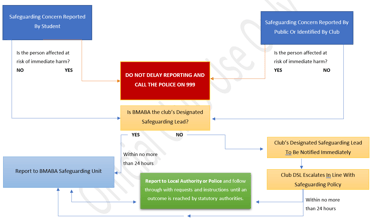

Key Contacts
Key contacts for Nodoka Martial Arts are as follows;
CEO/Chief Instructor and Designated Safeguarding Lead:
Name: JUAN ROSSITTO
Contact: 07565502554, nodokamartialarts@outlook.com
If you send an email, please add SAFEGUARDING in the subject title.
In the event that you are not confident raising your concerns with us, you can also raise immediate safeguarding concerns or complaints to our association, the British Martial Arts & Boxing Association (BMABA) for a confidential and professional response.
The BMABA’s lead safeguarding details are:
BMABA National Designated Safeguarding Lead: Kirsty Hawkins
Telephone Number: 01798 306546 (ext. 201);
E-Mail: safeguarding@bmaba.org.uk
If there is immediate concerns for the safety of a child or adult at risk, please call the police on 999. Should you not be confident raising your concerns for a non-immediate danger with us or our association, the contact details for the local authority are found in red on the page above.
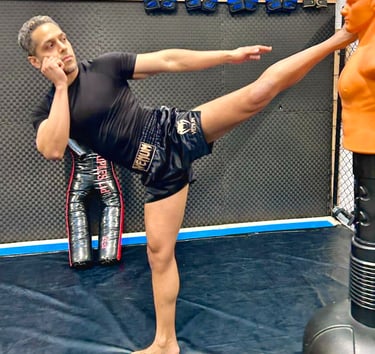

Contact:
07565502554
nodokamartialarts@outlook.com
